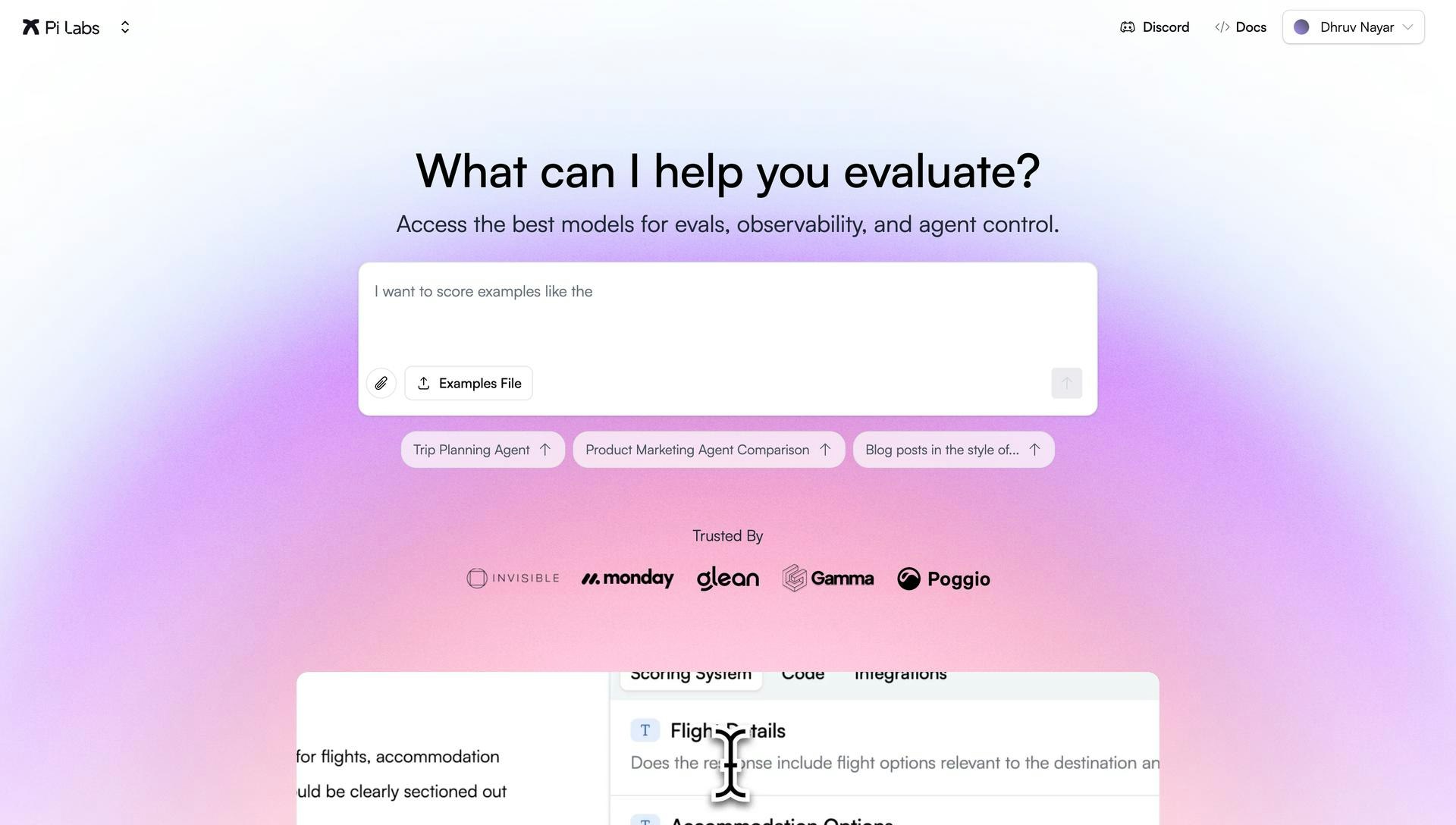Table of Contents
Overview
In the fast-paced world of Large Language Model (LLM) development, ensuring the quality and reliability of your prompts is paramount. Enter Pi Copilot, an AI-powered evaluation automation tool designed to streamline your testing process and deliver consistent, accurate results. Forget tedious manual eval creation – Pi Copilot leverages user feedback and prompt iterations to automatically generate and maintain evaluation tests, freeing up your time to focus on innovation. Let’s dive into what makes Pi Copilot a game-changer.
Key Features
Pi Copilot boasts a robust set of features designed to simplify and enhance your LLM evaluation workflow:
- Automated Eval Generation: Pi Copilot intelligently generates evaluation tests based on real-world user feedback and prompt iterations, eliminating the need for manual test creation.
- Prompt Feedback Integration: Seamlessly integrates with your existing feedback loops, allowing the system to learn and adapt to evolving user needs.
- Tool Integrations (Sheets, PromptFoo, GRPO): Connects with popular tools like Google Sheets, PromptFoo, and GRPO, providing a unified and efficient evaluation environment.
- Export to Code: Easily export your generated tests as code for integration into your existing development pipelines.
- High Token Limits in Free Tier: Take advantage of generous token limits in the free tier, allowing you to explore the tool’s capabilities without breaking the bank.
How It Works
Pi Copilot simplifies the evaluation process with its intuitive workflow. First, users connect their LLM projects to the platform. Pi Copilot then actively monitors user feedback and any prompt changes made within the project. Based on this information, the system automatically generates new evaluations or updates existing ones, ensuring that your tests remain accurate and relevant. Finally, users can export these tests as code for direct integration or manage them directly within linked tools like Google Sheets or PromptFoo. This streamlined process ensures consistent and reliable evaluation across all your testing efforts.
Use Cases
Pi Copilot is a versatile tool applicable to a wide range of scenarios:
- LLM App Developers Validating Prompt Changes: Quickly assess the impact of prompt modifications on your application’s performance.
- Teams Managing Prompt Refinement: Streamline the iterative process of prompt refinement with automated evaluation.
- Researchers Automating Benchmark Tests: Automate the creation and execution of benchmark tests for research purposes.
- QA Teams Standardizing Evaluation Processes: Establish consistent evaluation processes across your QA team.
Pros & Cons
Like any tool, Pi Copilot has its strengths and weaknesses. Let’s take a closer look:
Advantages
- Saves significant time on test creation by automating the process.
- Integrates seamlessly with common development and evaluation tools.
- Offers a generous free-tier limit for initial exploration and smaller projects.
- Improves the consistency and reliability of evaluations across the board.
Disadvantages
- Primarily focused on the evaluation use case, potentially limiting its broader applicability.
- May require initial setup and configuration for seamless integration with external tools.
How Does It Compare?
When choosing an LLM evaluation tool, it’s important to consider your specific needs and compare available options. EvalGenie, for example, relies on manual eval creation, while Pi Copilot offers a fully automated approach. PromptLayer, on the other hand, focuses primarily on analytics, whereas Pi Copilot emphasizes streamlining testing workflows. This makes Pi Copilot a more suitable choice for teams prioritizing efficient and consistent eval creation.
Final Thoughts
Pi Copilot offers a compelling solution for LLM developers and teams seeking to automate and streamline their evaluation processes. Its intuitive workflow, robust feature set, and generous free tier make it an excellent choice for improving the consistency and reliability of your LLM applications. While its focus is primarily on evaluation, its integrations and time-saving capabilities make it a valuable asset for any team working with LLMs.
https://withpi.ai